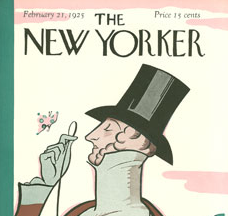 by Macy Halford
by Macy Halford
It was criminal how sexy it was. Writers of different genres intermingling, their poisons of choice (Pinot Grigio, Pinot Noir) placid in Dixie cups. Bright lights, marble busts of dead authors, buttercream-yellow walls and crown molding, an overwhelming air of camaraderie. This was the scene last night at the old Mercantile Library, on East 47th Street, now the Center for Fiction and home (for an hour) to a reading of The End of a Dark Street.
The editors of this decidedly transgressive anthology, S. J. Rozan and Jonathan Santlofer, stood and explained their reasoning: by bringing literary heavyweights (among them Madison Smartt Bell, Francine Prose, Amy Hempel, Edmund White) together with crime-fiction heavyweights (among them Lee Child, Laura Lippman, James Grady, Lawrence Block, Val McDermid), the literary legitimacy of crime fiction might be demonstrated: all the stories were so good, Rozan said, that one could not tell which were written by the crime writers and which by the literary writers.
The reading got underway. It was instantly apparent which genre each writer belonged to—first by appearance, then by mannerism, finally by prose. Madison Smartt Bell (all ears and Southern drawl) went first: “Thank y’all,” he said very slowly. “Please don’t look at my thumb. I’m embarrassed about my thumb. I cut it on a piece of chocolate.” He did, in fact, pronounce “chocolate” like Forrest Gump. He described his story: “One of the noir elements is the death of print journalism.” (Slow smile.) At some point, he pulled out a knife.
I confess to falling in love with Madison Smartt Bell. What a strange creature. Those double “t”s, I think, explain it.
The reading continued with Lawrence Block. He looks like his name. He stood at the podium, said, “ ‘Scenarios,’ by Lawrence Block. I just wanted to give you a taste,” and sat down.
I had placed two of the small Dixie cups of wine under my chair, and at this point I reached down for one. This helps to explain my notes of James Grady’s reading:
Maid’s uniform
thighs
acid
She wore no panties
He deserves it
Run
“He looks like a military dad from one of those teen movies,” Samantha, who was sitting next to me, said. I wrote this down.
More people read, though not all the writers were present. I enjoyed them all, but especially Amy Hempel and Francine Prose, who I wish would become best friends and go everywhere together, arm in arm. Amy Hempel is tiny and beautiful, with very long white hair and eyes which suggest too much intelligence. Francine Prose is very tall and beautiful, with shoulder-length black hair, and eyes which suggest too much intelligence. She was wearing polka-dots. She said, “Everything I know about sex and crime, I learned from ‘Law & Order: S.V.U.’ ”
Finally, Edmund White’s turn came. His story had to do, essentially, with the crime of Ivy League undergraduate workaholism. “I gave this to my friend Joyce Carol Oates to read,” he said. “And she said, ‘I think this is one you might reconsider when you collect them.’ ”
If White’s story is not destined for his collected works, I am glad it (along with all the other stories celebrated last night) has found a place in this volume. The general feeling among the attendees, as we made our way to the exit, was that it would be a very fine beach read, perfect for some scorching July day. But despite the fact that the night outside the library was dark and freezing and about to rain, none of us was going to wait that long.
(View original article here.)

